Using corpses, video clips of blown-up buildings, staged Ukrainian military equipment, and actors playing Russian-speaking bereaved, the Kremlin plans to produce a graphic film that would create a pretext for intervention in Ukraine. Meanwhile, Russia has pre-positioned operatives trained in urban warfare to carry out a false-flag attack on its forces in eastern Ukraine, also to fabricate a justification for war. And the Kremlin has developed plans to install a pro-Russian leader in Ukraine, having already chosen a potential candidate.
These are some of the extraordinary disclosures made by the United States and British governments in recent weeks, in near-real-time, as part of a concerted effort to expose Russian President Vladimir Putin’s next moves in Ukraine, and in doing so, disrupt them. They reveal a new understanding in Washington and London that the information space may be among the most consequential terrain Putin is contesting.
This wasn’t always the case. In 2014, the United States and its allies were caught flat footed —not just by Russia’s invasion of Ukraine, but by the campaign of falsehoods that accompanied it. Designed to warp public perceptions of the annexation of Crimea, delegitimize the government in Kyiv, cast doubt on the existence of Russian operatives in eastern Ukraine, and evade blame for their downing of passenger jet MH-17, these information operations took Western governments by surprise. The U.S. government was slow to coordinate with partners, and some Western journalists, not yet wise to the Kremlin’s playbook, covered “both sides” of events, unwittingly feeding the uncertainty and nihilism about the existence of truth on which Putin thrives.
The Biden administration in particular seems to have learned lessons from this experience. By launching a proactive campaign to call the Kremlin’s bluffs, the White House hopes to foil Moscow’s plans. But even if, as seems likely, it falls short of that goal, Washington’s campaign of disclosures could make it more difficult for the Kremlin to deploy disinformation to deflect culpability for its actions in the aftermath of an intervention, and help build public support in the United States and Europe for a sharper response. Because the information contest is asymmetric in nature — the Kremlin, unlike the White House, faces few normative restraints on its behavior — the effort may not put the Russia wholly on the back foot. But it has kept Moscow on its toes. The Kremlin may have expected Washington to notice its false flag preparations, but it likely did not anticipate that the administration would move so quickly to lay them bare.
Of course, this strategy is not without downsides. By sharing information in real time, Washington risks exposing important sources and methods of intelligence collection. If the Kremlin figures out where leaks are coming from, it could plug them, leaving the United States and its partners without certain high-quality information precisely at a time when that information is needed the most.
Perhaps that is why the administration’s assertions have been detailed, but not backed by granular evidence, which has prompted some skepticism and at least one testy back-and-forth with a reporter. In the short term, Washington’s assertions are likely to make it much harder for the Kremlin to carry out its plans and justify them with propaganda, even if distrust in the U.S. government remains in many quarters.
Over the long run, Washington would be wise to remember that one of Putin’s core aims is to undermine the credibility of U.S. government and its pronouncements. The White House should make that task harder too, by over time, releasing more information about the evidence it has collected. That would not be unprecedented. In 2018, the British government said it was “highly likely” that the Kremlin was behind the poisoning of former Russian double agent Sergei Skripal and his daughter Yulia, eight days after the two were found unconscious on a park bench in Salisbury. It subsequently shared additional details to support that claim, complicating the Kremlin’s efforts to spread conspiracy theories that would divert fault.
For now, the administration could resist taking a combative tone with reporters who, in asking for evidence, are doing their jobs. In addressing the United Nations Security Council yesterday, Secretary of State Antony Blinken gave a nod to doubts about Washington’s credibility based on past actions, stressing “I am here today not to start a war but to prevent one.”
The administration’s proactive campaign of disclosures may not prevent Putin from invading Ukraine or insulate President Joe Biden from the political headwinds that such a development could trigger. But the White House deserves credit for being admirably nimble at complicating Moscow’s plans, making it harder for the Kremlin to deflect culpability with lies, and perhaps besting Putin at his own information game.
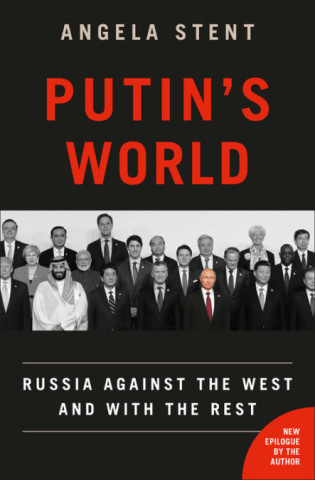

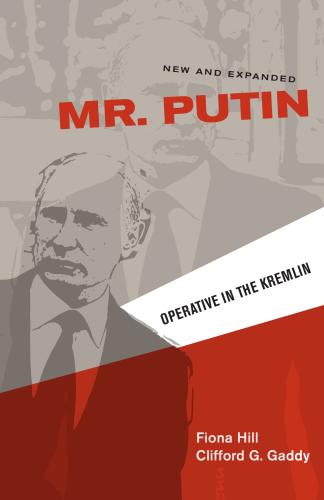
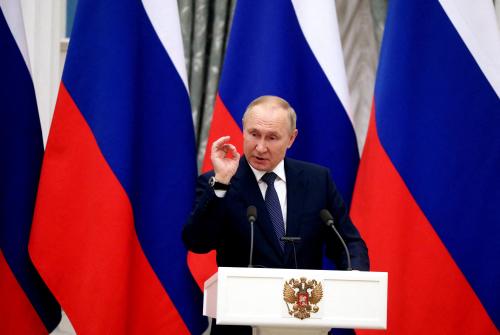
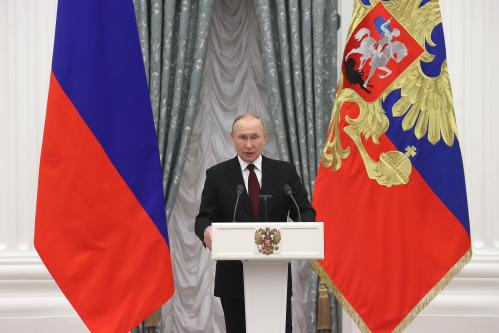
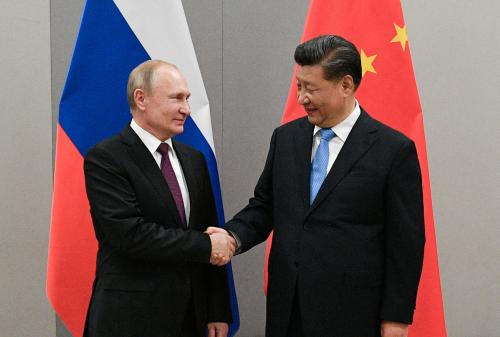



Commentary
Preempting Putin: Washington’s campaign of intelligence disclosures is complicating Moscow’s plans for Ukraine
February 18, 2022